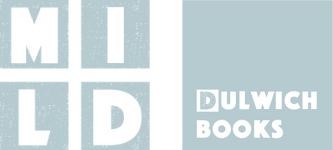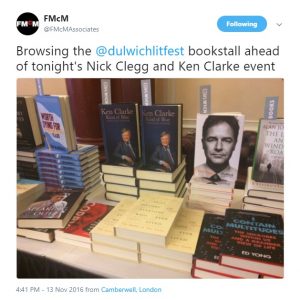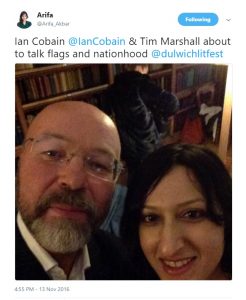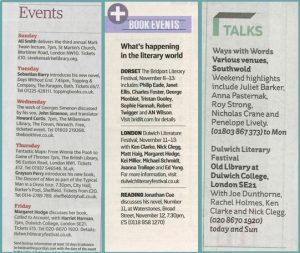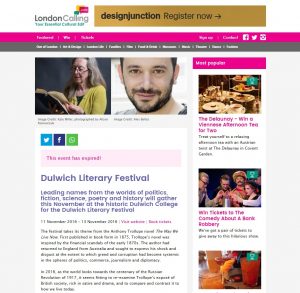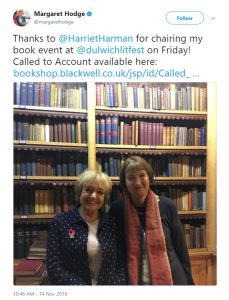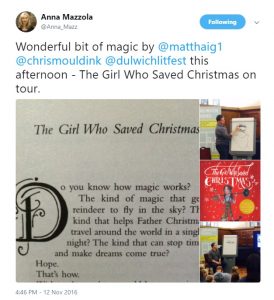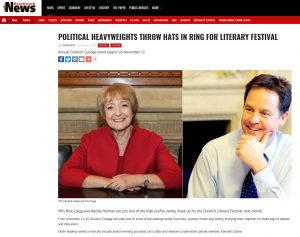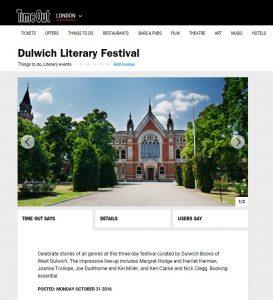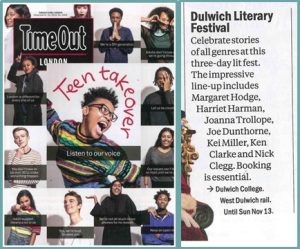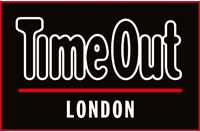Dulwich Literary Festival 2018: ‘Rough Music’
Rough music, skimmington, or charivari, is an ancient traditional means of expressing dissent – the violation of social norms the usual target. We have given this year’s Dulwich Literary Festival this title, not because we plan to parade through leafy suburbs rattling impromptu instruments but because we are featuring writers who highlight injustice, fight against stereotype, and make a noise about the iniquities of war, corruption, bad-faith politics, forced migration and intolerance of difference.
We’ll be taking a close look at conflicts over the past century with Giles Milton’s new book about D-Day, with Lindsey Hilsum’s brilliant biography of the great war correspondent Marie Colvin, and with Michael Hughes’ and Sulaiman Addonia’s outstanding novels of collateral damage. Kamal Ahmed will discuss being the very British child of a Somali father, and Simon Heffer will examine a previous era
of conflict in The Age of Decadence 1880 – 1914, in the lead up to the Great War. The festival’s finale features Ben Macintyre’s majestic cold war study, The Spy and the Traitor.
One hundred years after the Armistice, at 12.30 on 11th November, we’ll discuss Robert Graves and the war poets with the biographer Jean Moorcroft Wilson alongside PTSD expert Matthew Green. Elsewhere in the festival the award-winning novelist, Dulwich Books favourite Melissa Harrison lures us into the pastoral with her lyrical novel All Among the Barley, set in 1934 in the shadow of WW2. And we’ll explore contemporary themes of greed, corruption and the role of the media with Oliver Bullough, Darshini David, Isabel Hardman and Jason Cowley.
We commemorate 100 years since the granting of the partial women’s franchise with the fabulous Jo Brand discussing her book Born Lippy with another South London comic, Brenda Gilhooly, as we look at the lighter side of dissent, on which theme we also welcome Nick Hewer. And running through the festival is a thread of music with John Suchet’s take on Tchaikovsky, and Jane Glover in conversation with Elizabeth Nicholson, the director of the Handel Museum, who will place Handel in his social and political context as well as celebrating his musical genius. And Louis de Bernières will enchant us with his poetry collection, The Cat in the Treble Clef.
My paternal grandfather, missing an eye and therefore not fit for active service, was a quartermaster in France in WW1, while his three athletic brothers were killed within a few miles of each other in the trenches. This festival is dedicated to the memory of those four brave brothers and to all those who have died and suffered in warzones since 1914, as well as to those who have lifted their voices in protest and who have encouraged us to live the best lives we can.
Susie Nicklin, September 2018




